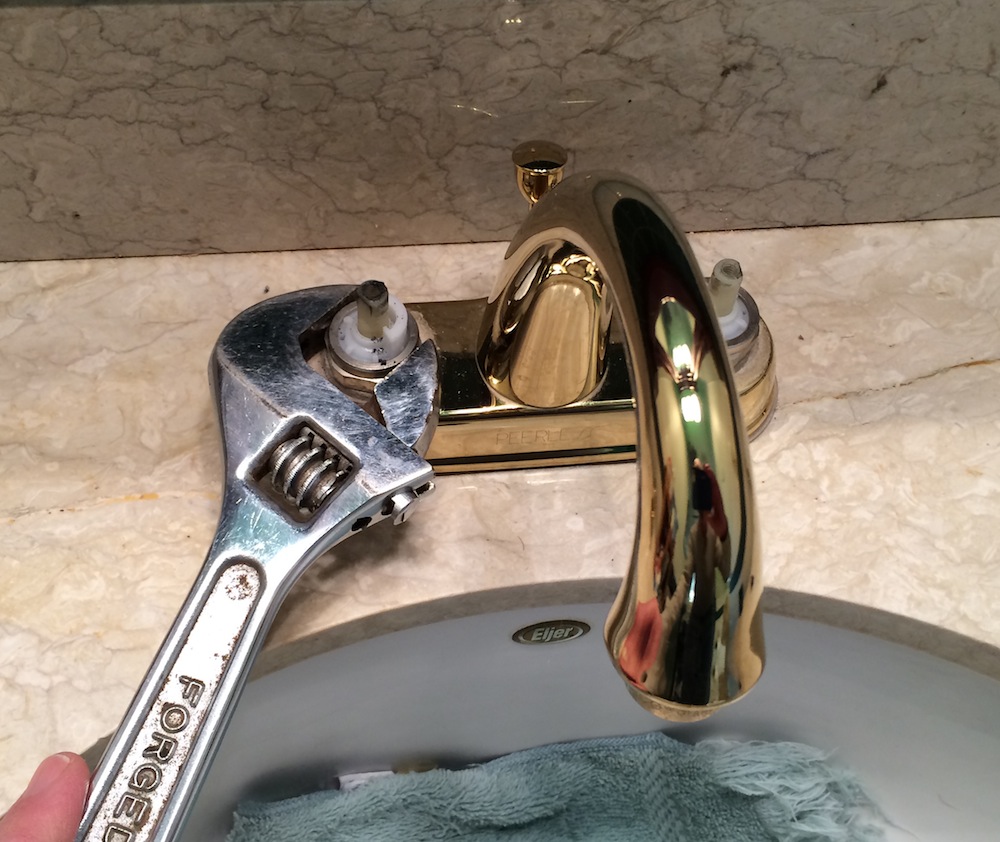An Factors Behind Correcting a Faulty Faucet
An Factors Behind Correcting a Faulty Faucet
Blog Article
Every person has got their private opinion in relation to 4 Common Reasons for a Leaky Faucet.

Trickling taps could feel like a minor hassle, however their impact surpasses just the annoyance of the sound. From wasting water to incurring unnecessary economic costs and wellness dangers, ignoring a trickling tap can lead to different repercussions. In this write-up, we'll look into why it's important to resolve this usual family concern immediately and successfully.
Waste of Water
Environmental Impact
Dripping taps contribute significantly to water waste. According to the Epa (EPA), a single faucet trickling at one drip per second can lose greater than 3,000 gallons of water per year. This not only stress water resources yet likewise affects communities and wild animals based on them.
Financial Costs
Boosted Water Bills
Past the ecological effect, dripping taps can inflate water costs significantly. The built up wastefulness with time equates right into higher energy expenses, which can have been prevented with prompt repair work.
Possible Residential Property Damage
Additionally, long term dripping can cause damage to components and surfaces surrounding the tap. Water buildup can cause staining, rust, and also architectural issues if left unattended, leading to added fixing expenses.
Wellness Problems
Mold and Mildew Growth
The continuous existence of wetness from a leaking faucet creates an optimal atmosphere for mold and mildew development. These fungi not just compromise interior air top quality but also present wellness threats, particularly for individuals with breathing conditions or allergic reactions.
Waterborne Conditions
Stationary water in trickling taps can come to be a breeding place for microorganisms and various other virus, raising the threat of waterborne conditions. Pollutants such as Legionella bacteria thrive in stagnant water, possibly bring about significant health problems when ingested or inhaled.
Do it yourself vs. Specialist Repair service
Advantages and disadvantages of Do It Yourself Repair Work
While some may try to deal with a trickling tap themselves, DIY repair work come with their very own collection of difficulties. Without correct expertise and tools, do it yourself efforts can exacerbate the issue or result in incomplete repairs, prolonging the issue.
Benefits of Employing an Expert Plumber
Employing a specialist plumber makes certain that the underlying reason for the leaking faucet is dealt with efficiently. Plumbings possess the competence and devices to diagnose and repair tap problems effectively, saving time and minimizing the threat of additional damages.
Step-by-Step Guide to Repairing a Dripping Tap
Tools Needed
Prior to attempting to fix a trickling faucet, collect the required devices, including a flexible wrench, screwdrivers, replacement parts (such as washing machines or cartridges), and plumber's tape.
Common Tap Issues and Their Solutions
Determine the kind of tap and the details concern triggering the drip. Common troubles include worn-out washing machines, corroded valve seats, or malfunctioning O-rings. Refer to manufacturer directions or online tutorials for detailed guidance on repair services.
Safety nets
Regular Maintenance Tips
To avoid leaking taps, execute regular upkeep such as cleaning aerators, examining for leaks, and replacing worn-out parts immediately. Furthermore, think about setting up water-saving gadgets or upgrading to much more reliable components.
Relevance of Prompt Fixes
Resolving leaking faucets as soon as they're seen protects against additional water waste and potential damage, inevitably conserving both water and money in the future.
Effect On Building Worth
Perception of Well-Maintained Building
Preserving a home in good condition, consisting of attending to upkeep issues like trickling faucets, improves its regarded value and charm amongst potential purchasers or lessees.
Impact on Resale Worth
Features with well-maintained plumbing components, including taps, command higher resale values in the property market. Dealing with trickling faucets can add to a positive perception throughout residential or commercial property assessments and settlements.
Environmental Responsibility
Individual Contribution to Conservation
Taking responsibility for dealing with trickling taps straightens with more comprehensive initiatives toward water conservation and environmental sustainability. Every person's activities jointly make a substantial influence on protecting valuable resources.
Lasting Living Practices
By prioritizing prompt fixings and embracing water-saving habits, people add to sustainable living methods that profit both present and future generations.
Final thought
Dealing with a leaking tap surpasses plain ease; it's a vital step towards conserving water, minimizing economic expenses, and safeguarding health and residential or commercial property. Whether via DIY repair services or specialist support, acting to fix dripping faucets is a little yet impactful method to promote liable stewardship of sources and contribute to a healthier, extra sustainable future.
Why Are My Faucets Dripping (And Can I Fix it Myself)?
Causes of a Dripping or Leaking Faucet
Whether you’re hearing drops of water falling and hitting a sink, or noticing water ooze out from the base of the spout, you shouldn’t ignore a dripping or leaking faucet. And, the good news is, sometimes you can fix the problem yourself.
In this article, we’ll review a few common causes of dripping and leaky. We’ll also walk you through some basic ways to find the problem and handle it without calling anyone — and let you know when to call in a pro.
But, no matter what the cause, or whether you can handle it on your own, the sooner you address it, the better.
Each drip may be a tiny amount of water. But, they all add up quickly. According to the U.S. Geological Survey, one faucet losing one drop every 20 seconds — five a minute — wastes around a liter of water every day, and 173 gallons a year.
Add in more than one in your house, and it’s a lot of water to waste. So, we’ll help you get to the bottom of things quickly.
Four Reasons Your Faucet May Be Dripping
Aerator is Damaged or Unseated Valve Seat is Corroded O Ring is Loose or Worn Out Part of the Assembly is Loose Aerator is Damaged or Unseated
If you unscrew the end of your faucet, you’ll find the aerator. It’s the little stem piece with a screen on it that shuts off the water circulation.
If it’s damaged, or if it’s not sitting right, it will allow water to pass through.
Valve Seat is Corroded
Next is the valve seat, which is connected to the washer. If the washer wasn’t in place correctly, then it could have ground against the seat. Over time, this damages the valve seat.
The problem could also be corrosion: Over time, the part has worn out, and it’s now allowing water to pass through.
O Ring is Loose or Worn Out
Since the o ring is only a small rubber gasket, it’s a common reason why the faucet is dripping. You’ll find it at the base of the faucet, and it’s there to keep water from coming out where it’s not supposed to.
However, it’s common for the o ring to wear out over time. When it does, you’ll notice a drip.
Part of the Assembly is Loose
So far, we’ve looked at a few small, specific parts. But, the problem could be anywhere in the assembly if something’s out of place.
Even if a part isn’t damaged, over time, it may have become loose or dislodged. It could be the parts we mentioned, or the aerator at the tip of the faucet, the stem itself,
Can I Fix a Leaky Faucet Myself?
Depending on the problem, and how handy you are, there’s a chance you can fix a leaky faucet without calling a professional. But, you do run the risk of making the problem worse.
If it’s a small drip, you can certainly try a few troubleshooting tactics. We’ll walk you through them in a moment.
But, no matter what, your first step should be shutting off the water coming into the faucet. You should find a shutoff valve under the sink on the pipes leading to it. Turn each one clockwise until they close tightly.
Next, make sure you have the right tools for whatever you’re attempting. It’s tempting to make do with what you have. But, you need the right ones for a reason: You’re often dealing with small parts that can break if you handle them carelessly.
If you’re feeling confident, here are some places to start.
Items Near the Tip of the Faucet
A few of the parts we mentioned — particularly the valve seat and washer — are located at the tip of the faucet where the water comes out. They’re easy to access, making it a good place to start.
Check the O Ring
To check the o ring, you’ll need to take off the spout at the base. It’s easiest on kitchen sinks with long spouts, versus the smaller, bulkier base on most bathroom sinks.
Either way, this can be tricky, so do it carefully and don’t force anything. If it’s not coming right off, you’re much better off calling in a pro than possibly breaking something.
For a kitchen sink, there’s usually a nut or coupling assembly at the base of the spout. These often slide off easily without using any tools.
Once you’ve disassembled those parts, gently but forcefully twist off the spout.
Then, you can see the o rings. There should be two of the rubber gaskets on the base. If they look worn or damaged, replace them, and see if that solves the problem.

We hope you liked our article about Leaky Faucets: Why They Happen & What to Do About Them. Thank you so much for taking the time to browse our piece. Please take a moment to promote this blog if you enjoyed it. Many thanks for your time spent reading it.
Report this page